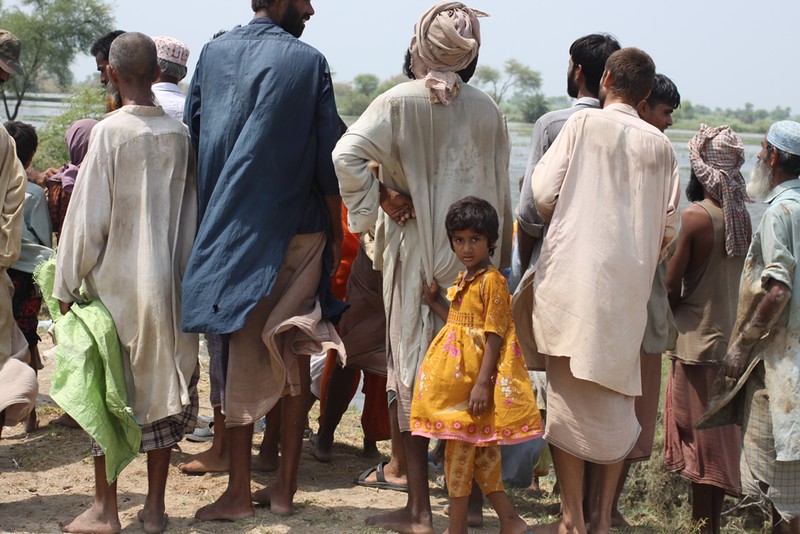The Link Between Poverty and Crime in Pakistan

Poverty and crime in Pakistan can be intrinsically linked due to the nature of the cause-effect relationship. High rates of both inflation and unemployment and a fractured political system have plunged millions of Pakistani citizens into poverty, often often end up in the dark underworlds of crime.
Pakistan’s Turbulent History
After British India gained independence in 1947, the land was split into three wings: Pakistan, India and East Pakistan (later gaining independence to form the nation of Bangladesh).
Reports have indicated that nearly 17 million people have moved in both directions between India and the two wings of Pakistan, marking the largest mass migration of people on record.
As the new country emerged, Pakistan struggled to find a national identity and evolve a political system for the incredibly diverse population. The goal of national integration and creating a unified population proved more difficult than first anticipated, and early prime ministers found themselves assassinated or overthrown rapidly.
A Fractured System
It has been difficult for politicians and governments to rectify the issues of poverty due to the nature of Pakistan’s political system. The opposing factions who battle between secularism and religion mean that there is rarely any form of agreement.
Very few prime ministers have seen out their full term with the increasingly powerful army often overthrowing them, resulting in years of marshal rule and military dictators. Coups and assassinations are all too common, resulting in a fragmented political system that is not fit to instate poverty-reducing legislation.
Increased Poverty and Crime
A lack of political representation for ordinary citizens and an elite that dominates the class system has resulted in higher levels of inequality than ever. It is estimated that 38% of people live in multidimensional poverty because of inflation and increasing levels of unemployment.
Child malnutrition sits at 38%, and the Global Hunger Index has highlighted hunger as a persistent problem within Pakistan.
A positive relationship between crime rates and unemployment has been observed as it is believed that poverty may lead to a high level of stress and mental illness, in turn causing individuals to adopt a mindset that views illegal activity as lucrative.
There is also a strong correlation between income inequality and crime rates. Poverty and crime in Pakistan have led to the rise of organized crime groups, drug traffickers and terrorism-related activities. Criminal organizations often target poor communities, exploiting their vulnerability and desperation to recruit members or extort money.
An Interview With Shmaila Malik
The Borgen Project spoke to Shmaila Malik, a Former United Nations Information Centre officer based in Islamabad, Pakistan. Malik argues that one could certainly make the case that poverty can lead to increased crime rates:
“I think poverty ultimately makes people desperate. We have seen that those affected by poverty, especially those with families or young children, simply just want to feed their families. Thus, these are the people most willing to go to any extreme to do so.”
Malik also states that membership within an organized crime group “will provide a bit of quick cash and can buy food or a month of school fees.” The crime rate within Pakistan has been rising, as the National Police Bureau reported, with an increase of 12.2% between 2012 and 2018.
Many believe that the extreme shortage of necessary items due to the Pakistan economic crisis and the easy availability of sophisticated weapons has led to a sharp rise in violent crimes.
Police in Lahore, one of Pakistan’s largest cities, have reported a 282% increase in gang robberies.
While it is clear that poverty and crime have a link, the question also remains of what can help alleviate the effects. Malik believes that it is now up to the goodwill of the government to act and ensure the holding of free and fair elections. She also believes that NGOs and the government must now collaborate more than ever:
“The work of smaller NGOs and grassroots organizations in providing education and awareness about the effects of poverty should also be given more commendation. Their work is vital, and it is imperative that any new government chooses to support this.”
The Vital Work of NGOs
While global aid bodies like the UN and UNICEF are consistently working, the work of smaller NGOs is vital in reducing the effects of poverty and crime in Pakistan.
Foundation Fighting Poverty is an NGO operating within Pakistan’s major cities since 2009. Its youth programs target the younger demographic within the country, aiming to spread awareness about social issues and target positive change.
The organization’s social benefits span a range of sectors, including education provisions for those who cannot afford government schools and providing basic health treatments to the less fortunate. Its aim to break the cycle of poverty and ensure that children do not find their way down a life of crime has been a common feature since their creation.
Multiple reports have exposed the link between poverty and crime in Pakistan. Still, hope remains that the situation will improve, given the response of NGOs and international aid bodies.
– Maryam Rana
Photo: Flickr
